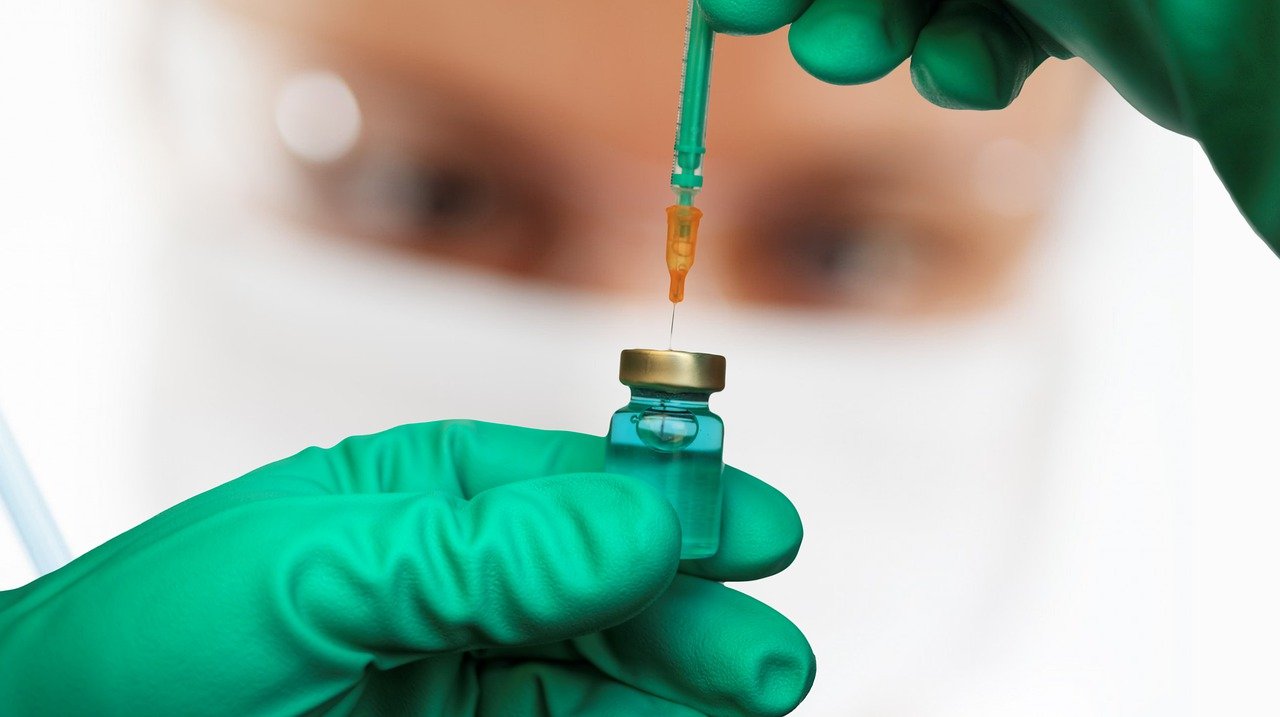More than 100 candidate malaria vaccines have been tested in humans over the past decades, but none have previously achieved the WHO’s goal of greater than 75% efficacy. health.
Scientists have warned of faltering progress in combating this the disease A mosquito-borne disease that killed more than 640,000 people in 2020, mostly children, in sub-Saharan Africa.
“Conducting vaccine trials in Africa assures us that the effectiveness of the candidate vaccine at the end of the experiment will reflect its performance in the real conditions of its use.”
Halidou Tinto, IRSS, Burkina Faso
Researchers from Oxford University (UK) and the Institute Research in Health Sciences (IRSS) from Nanoro in Burkina FasoIt claims that a booster from a candidate malaria vaccine, called R21, showed 80% efficacy in children who received the highest dose one year after an initial three-dose course.
Efficacy was maintained at 78% for two years after booster administration in a trial of 450 children aged 5 to 17 months at the Nano Clinical Research Unit. The researchers say there were no serious side effects.
Halidou Tinto, IRSS Regional Director, Professor of Parasitology and Principal Investigator at the trial, said, SciDev.Net . Network That “this is another precedent in the history of malaria vaccine research.”
“This means that we can maintain efficacy of more than 75% in the long term if we give a booster dose and this would allow children who live in malaria-endemic areas such as Burkina to be well protected from malaria at their age. They are the most at risk.”
The vaccine — which Halidou Tinto describes as an improved version of the RTS, S vaccine being rolled out in a number of African countries — already showed 77% efficacy in the first year in an earlier trial in 2021.
The phase II trial was extended for two years to see if additional booster doses would be needed to maintain this high efficacy over time.
The researcher in Burkina Faso says he is “optimistic” that the latest findings can be replicated in the ongoing Phase III trial involving 4,800 children in Burkina Faso, FinancialKenya and Tanzania. Expected results later this year.
Deployment in 2023
The R21 vaccine, which was developed at Oxford University’s Jenner Institute, is licensed for production by India Serum Institute (II).
“We are already planning, in cooperation with our partners (…) to undertake, from 2023, the roll-out of my R21 program to at least 250,000 children in Burkina Faso in order to accelerate the agenda of widespread deployment of this vaccine in Africa,” says Halidou Tinto .
He adds that the SII has committed to producing at least 100 to 200 million doses of the R21 vaccine annually, subject to a WHO recommendation for publication.
“This will complement the only vaccine currently recommended by the World Health Organization (RTS, S) whose current production capacity cannot meet global demand,” says the researcher.The World Health Organization (WHO) recommended RTS,S, the world’s first malaria vaccine, in October 2021 for use in at-risk children in sub-Saharan Africa and other regions with moderate to high transmission of malaria caused by the parasite Plasmodium falciparum.
However, scientists have stressed the need for further vaccine development and investment in research.
Director of the Jenner Institute, Adrian Hill, co-author of the study on R21 published in Lancet Infectious Diseases she says is “the best data to date” of any malaria vaccine.
“We are pleased to see that a standard four-dose vaccination regimen can now, for the first time, achieve a high level of efficacy over two years that has been an ambitious goal of malaria vaccines for many years,” he notes.
Adrian Hill also says that this vaccine will provide “long-term protection” for the group that needs it most: young African children. But he notes that the vaccine’s 77% accuracy depends on other control measures such as insecticides and bed nets, which should continue to be used.
“Scientifically speaking, it can be argued that RTS,S suffered from a saturation of the immune response caused by an excess of hepatitis B virus surface antigens. On the basis of this observation, Professor Adrian Hill’s team proceeded to simplify the formation of RTS,S by reducing the amount of antigen HBs, allowing for a better immune response against the parasite, compares Halidou Tinto.
According to his explanations, another “major” change is the use of R21 for an adjuvant other than the one that was used in the development of RTS, S
Efficiency in real conditions
James Tibandrana, who will take over the overall management of the nonprofit Malaria Consortium In October 2022, the results of these experiments were described as “remarkable”.
Tibandrana, who was not involved in the R21 trials, said the rapid development and deployment of vaccines against COVID-19 He showed that the time needed to develop and distribute vaccines could have been shortened while mitigating the risks.
“I hope these findings will spur continued investment in research and development for malaria vaccines, and equitable access to them, as they prevent malaria and save lives,” he adds.
“On a purely scientific level, conducting vaccine trials in Africa assures us that the efficacy of the candidate vaccine at the end of the trial will reflect its performance in the real conditions of its use and that it will not be different due to the variability in the epidemiological faces or the genetic diversity of malaria parasites,” says the researcher.
He concludes by saying that conducting these trials in Africa also contributes to building the capacity of research institutions on the continent through training as well as the capabilities of pharmaceutical regulatory authorities that “will be more efficient”.

“Subtly charming problem solver. Extreme tv enthusiast. Web scholar. Evil beer expert. Music nerd. Food junkie.”

